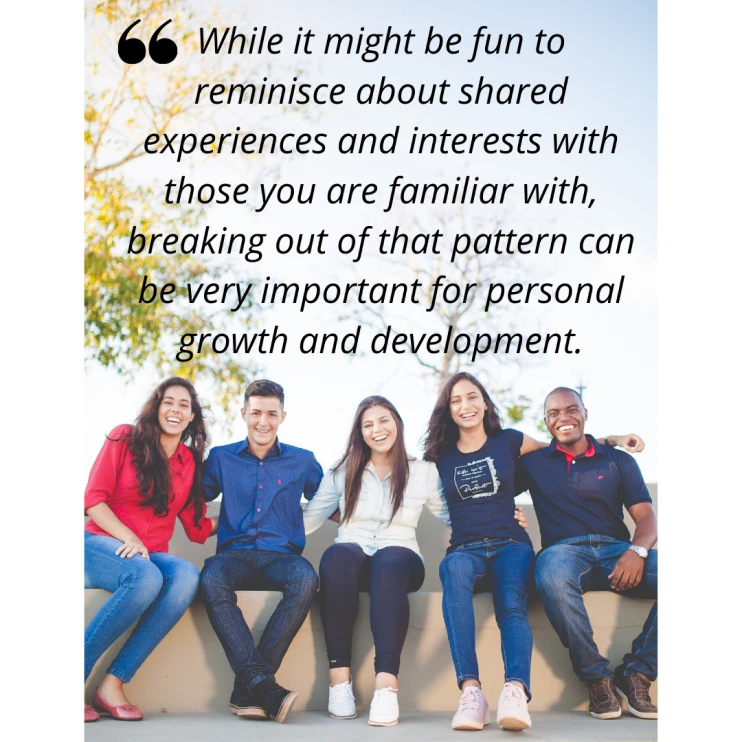In recent years, studies have demonstrated how diverse companies perform better, and the same can be said of our professional networks.
Greater Diversity Leads to Greater Success
Those who want to be successful can’t just surround themselves with people of similar backgrounds, according to a growing body of research. For example, a recent study by McKinsey found that companies in the top 25th percentile for gender diversity were 21% more likely to experience above average profits. Another, from the Boston Consulting Group, found that diverse management teams are more innovative, and as a result, see 19% more revenue.
As diversity leads to business success, it also leads to personal growth and success. Here’s how.
Human Nature Prefers Sameness
Building a more diverse professional (and personal) network is difficult when the forces of human nature are working against us. It’s a subconscious bias we all carry, as we’re often more comfortable around people who have common experiences and backgrounds.
Whether in school or in business, we tend to flock to those who appear similar, but it’s important to push back against that instinct. For example, if you graduated as an engineer from university and all your friends are graduates from the same program, and you come from a family of engineers, what happens when you need legal advice at 35 because you’re starting your first business? You won’t know who to ask because everyone you know is an engineer! Of course, this is an exaggeration, but only to prove a point. While it might be fun to reminisce about shared experiences and interests with those you are familiar with, breaking out of that pattern can be very important for personal growth and development.
What does a Having Diverse Network mean?
Before we delve into what our network does for us, let’s explore what a diverse network actually means. It doesn’t only mean knowing people of diverse skills - it also includes people from different backgrounds and experiences.

Practical Example
If you’re wondering why this is important, let’s look at this example - Anjali is in her 4th year of university and works part-time at a high-end restaurant to help pay for school. Anjali’s parents are of Indian descent and moved to Canada 10 years ago. Anjali is a strong server, because she knows to tell the Muslim family that walked into the restaurant which dishes use alcohol or pork products and warn the Hindu family observing a vegetarian diet which items have animal products.
When Anjali graduates from university and applies to a bank for a client-facing role, she has experience in providing VIP service to a diverse range of customers. Along with all her other skills, Anjali becomes a very strong candidate for the job.
At the end of the day, more and more customers and clients today are diverse or have diverse needs, so it stands to reason that our companies, service providers, and those that serve others, need to think more diversely. And diverse experience = diverse thoughts, ideas, and solutions to unique problems.
Networking Can Help Break Down Barriers and Bias
Did you know we all have unconscious biases, unconscious feelings that play a strong part in influencing our judgement of certain people and groups, away from being balanced or even-handed, in many different areas of life?
Strategic networking will certainly help build a diverse network, but will also help reduce some of these biases we carry. Going back to earlier in this article on how our brain prefers sameness, it similarly can view differences as a threat and to protect us, can ask us to remain in our comfort zone - it is why we prefer to associate with those like us. However, the only way to break those biases or barriers of our comfort zone is to connect with those who are different and teach our brain there is no threat, opening ourselves to learning from the diversity waiting for us just outside our comfort zone - or in other words, our current network.









.png)